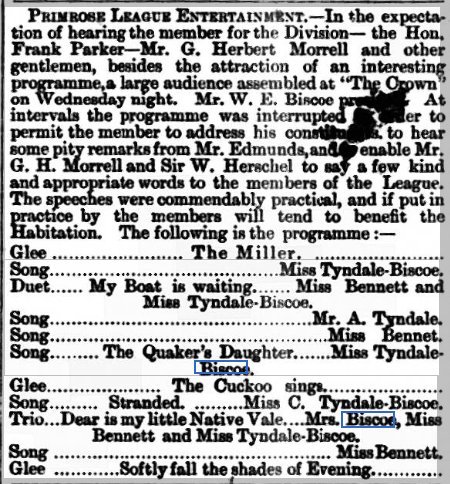Primrose League
The Primrose League and Wheatley. Four press articles are attached.
The Primrose League was established in 1883 by Lord Randolph Churchill and John Gorst in the wake of the Conservative Party's loss to Gladstone in the 1880 election and after the death of Benjamin Disraeli in 1881. Disraeli had been the hero of Popular Conservatism and had actually done much to expand the franchise to working class men in the cities in particular. The Primrose League would try to reach out to these new voters using innovative campaigning and imaginative social opportunities. The reason that the Primrose was chosen as an emblem was because it was purported to be Disraeli's favourite flower and it was already being worn by Conservative Party members on the anniversaries of his death.
The Primrose League would prove to be a milestone in political development in Britain as the League galvanised political participation and provided a more social aspect to political campaigning and lobbying. It began an extensive network of social activities which included music hall dances, high teas, summer fetes, excursions by train, cycling clubs and many other activities which had hitherto not been associated with the political process in Britain. It also appealed to women at a time before they were able to vote. Indeed by 1891 over half of the membership of the League were women.
The Oxford Journal on 23 October 1886 reported the inaugural meeting of '1744 Wheatley Habitation'. There was another press report that on 30 April 1887 that at the AGM, Mrs Biscoe of Holton Park was re-elected as Ruling Councillor, Mr Gale of Garsington as Secretary, and Mr E Bott of Wheatley as Treasurer. Miss Tyndale, Miss Frampton and Mrs Way joined the Council. Other reports in the same journal, 11 August 1888 and 27 July 1889, detailed its fete in Holton, and on 16 August 1890, a cricket match between Forest Hill and Holton, followed by a programme of sports.






